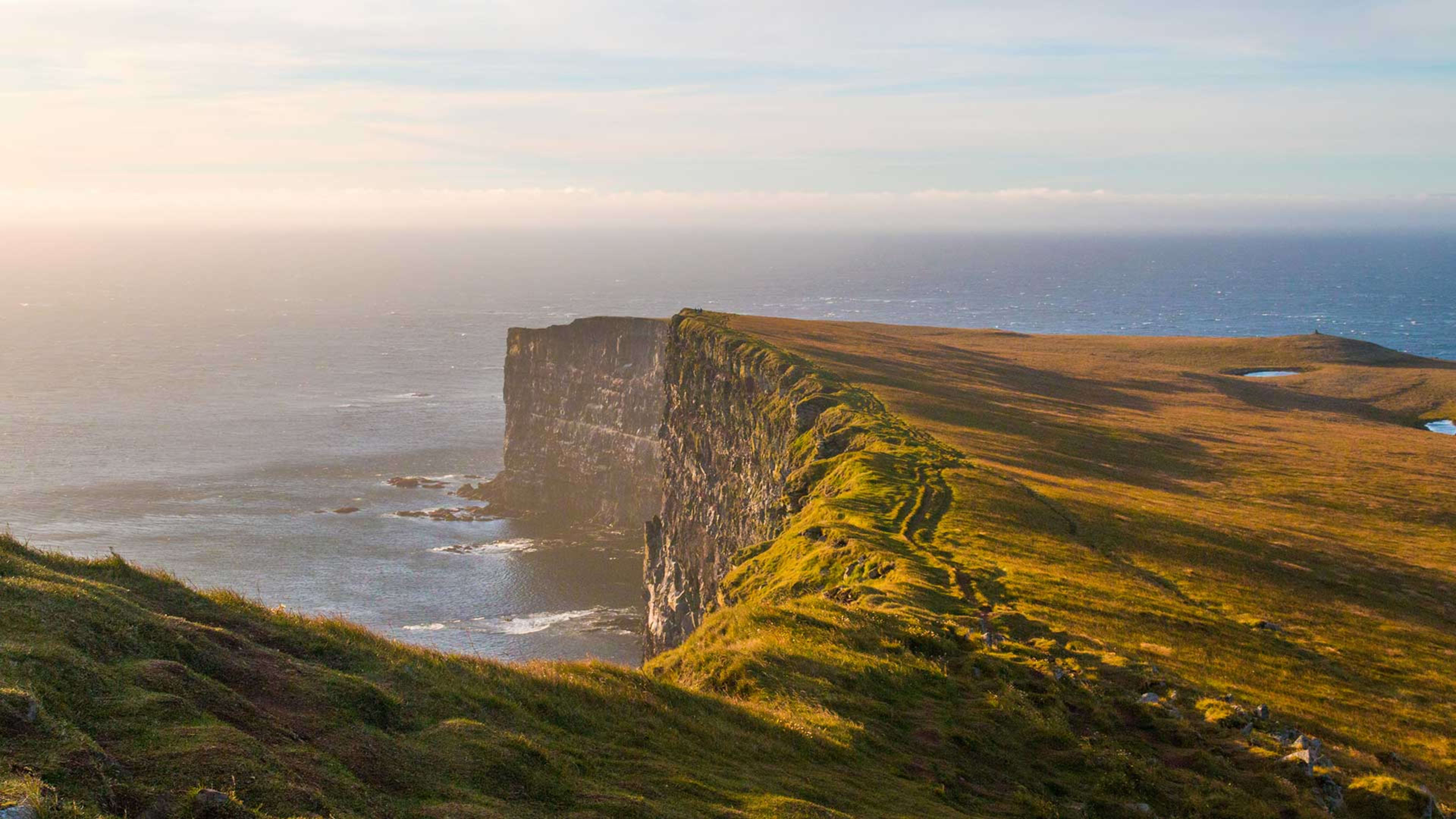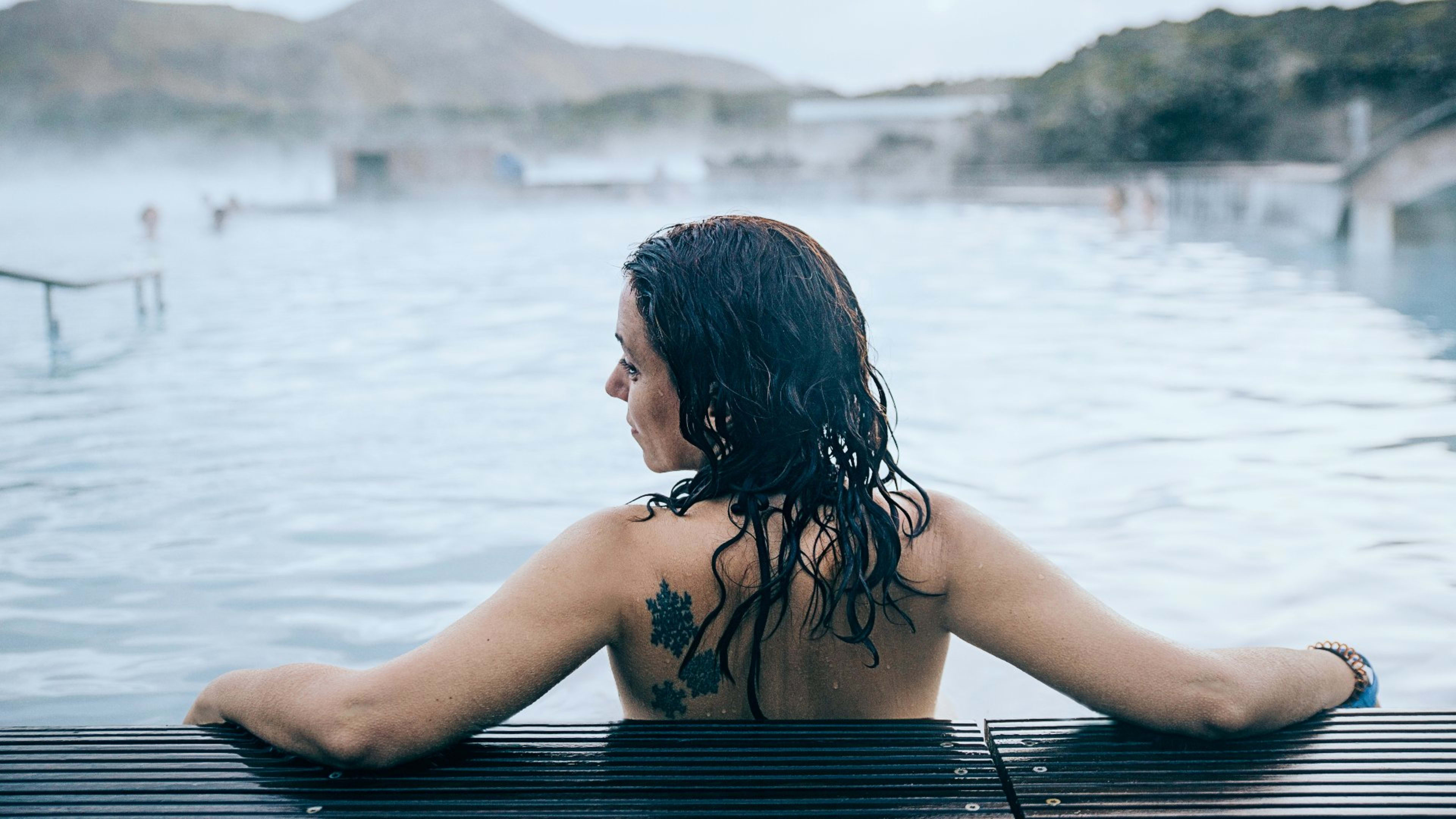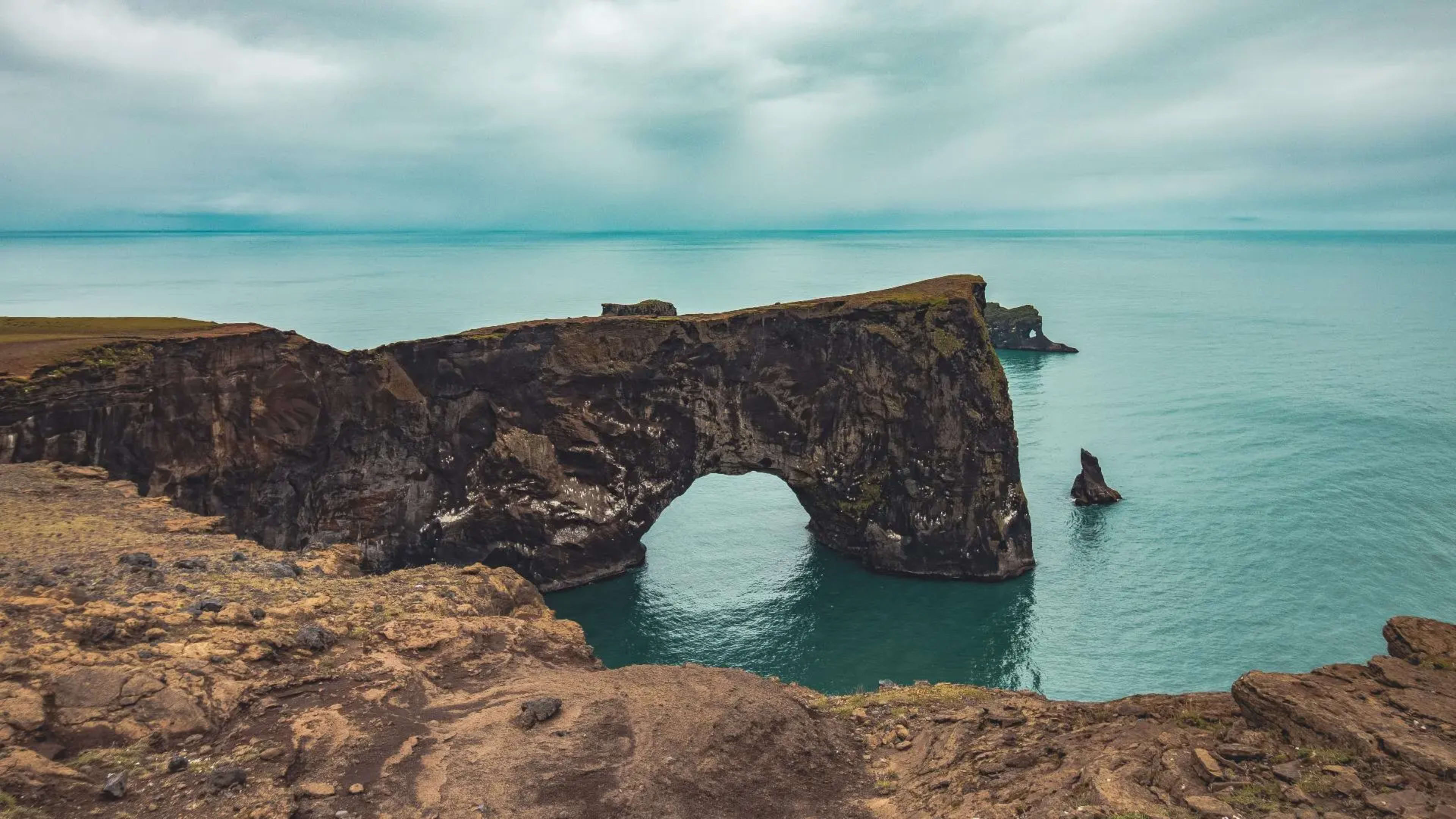If you’re wondering, ‘Is Iceland a safe country for me to visit?’ Well, you’re in for some good news. When it comes to choosing a safe destination, you really can’t do better than Iceland!
Despite all its volcanoes and glaciers, Iceland is consistently ranked as the safest country in the world. And it has kept this spot for many years.
There’s dozens of reasons why Iceland makes the cut, and without getting into the nitty-gritty, you’ll discover a few in this guide. Plus, you’ll learn how to make your trip even safer with some simple tips.
- Start planning your dream trip with these Iceland vacation packages.

How safe is Iceland?
When people say Iceland is the safest country in the world, you can rest assured this is based on the Global Peace Index (GPI). GPI is considered the leading measure of global peacefulness. So, you can trust them when they say Iceland is at the top.
Every year, the GPI ranks countries in terms of safety and security. It looks at all kinds of stats from countries worldwide, from health care quality and happiness to extreme things like national war involvement and murder rate.
Important note: You don’t need to worry about this in the Nordics.
In fact, Iceland has held the title of safest country in the world since 2008. Okay, we’re bragging a little now, but hopefully, that simple fact reassures you.
- Travel with like-minded people on a guided group tour.
- Related: Reasons to book with Iceland Tours.

Iceland's volcanic activity
Iceland has earned nickname of the Land of Fire and Ice thanks to its mix of stunning glaciers and active volcanoes. Volcanic activity is pretty common here, but don't worry, the locals are well-prepared.
Scientists and authorities are always on top of things, closely watching seismic activity so they can usually predict when a volcano might erupt.
If you're visiting Iceland, it’s best to stay up to date and follow local advice, especially when you're checking out volcanic sites. For example, be sure to stick to the marked hiking trails.
Pro tip: If you book with Iceland Tours, you'll be kept in the loop about any volcanic eruptions or earthquakes. Plus, you'll have access to our 24/7 helpline throughout your trip.
- Get the latest update on Iceland's volcanic activity.
Why is Iceland so safe?
There are many things that make Iceland a safe and unforgettable vacation destination. Read on to find out the key reasons why.
1. Happiness and well-being
Iceland consistently ranks among the happiest countries in the world. The 2024 World Happiness Report places it in the top 5, and for good reason.
The country’s social welfare system, excellent education, and focus on equality create a strong sense of well-being. When people are happy and well-supported, crime tends to be low, which is exactly what you’ll find in Iceland.
Iceland also boasts one of the best healthcare systems in the world. According to the Healthcare Access & Quality Index 2024 and the World Happiness Organization (WHO) report, it ranks in the top 5 worldwide.
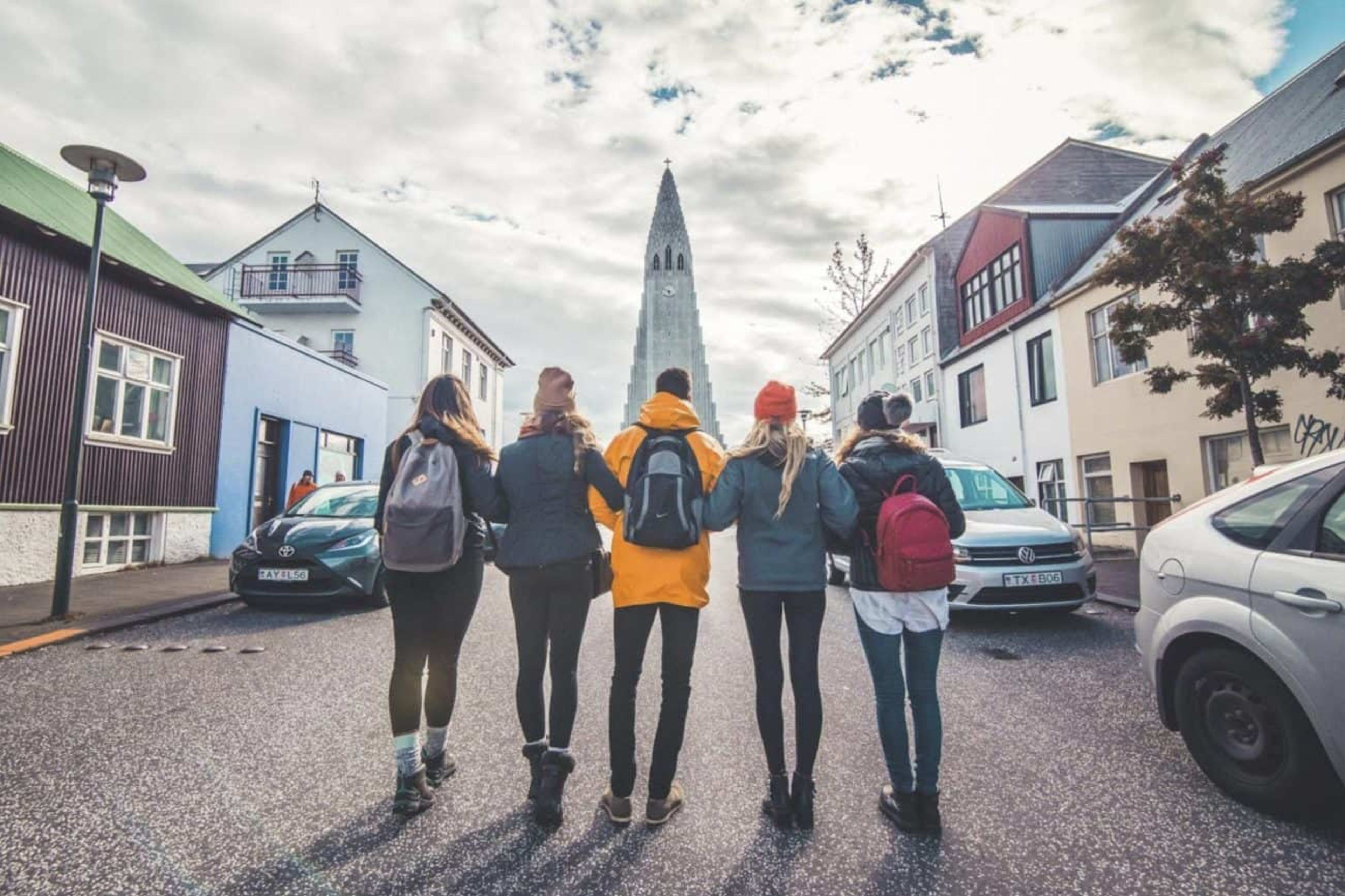
2. Equality for all
When it comes to equality, Iceland is a trailblazer. The country has taken significant strides to ensure that everyone, regardless of gender, sexual orientation, or religion, is treated fairly. In fact, the laws here are some of the most progressive in the world.
For example, same-sex marriage has been legal in Iceland since 2010, and LGBTQ+ couples have the same adoption rights as anyone else. But it’s not just about the laws – what really stands out is the strong community support for LGBTQ+ rights. For example, the vibrant Reykjavík Pride celebrations go off without a hitch (and without protests).
Iceland also stands up for gender equality. The country consistently ranks among the best in the world for gender equality, and it shows in everyday life. Whether you’re strolling through Reykjavík or exploring the countryside, you’ll find that Icelanders truly value fairness and inclusivity.
No matter who you are or where you come from, you’ll feel safe and respected in this open and accepting society. This inclusive atmosphere makes Iceland a welcoming and safe destination for you to visit if you’re an LGBTQ+, solo, or female traveler.
- Discover these trips for solo travelers.
- Related: Why you should visit Iceland.
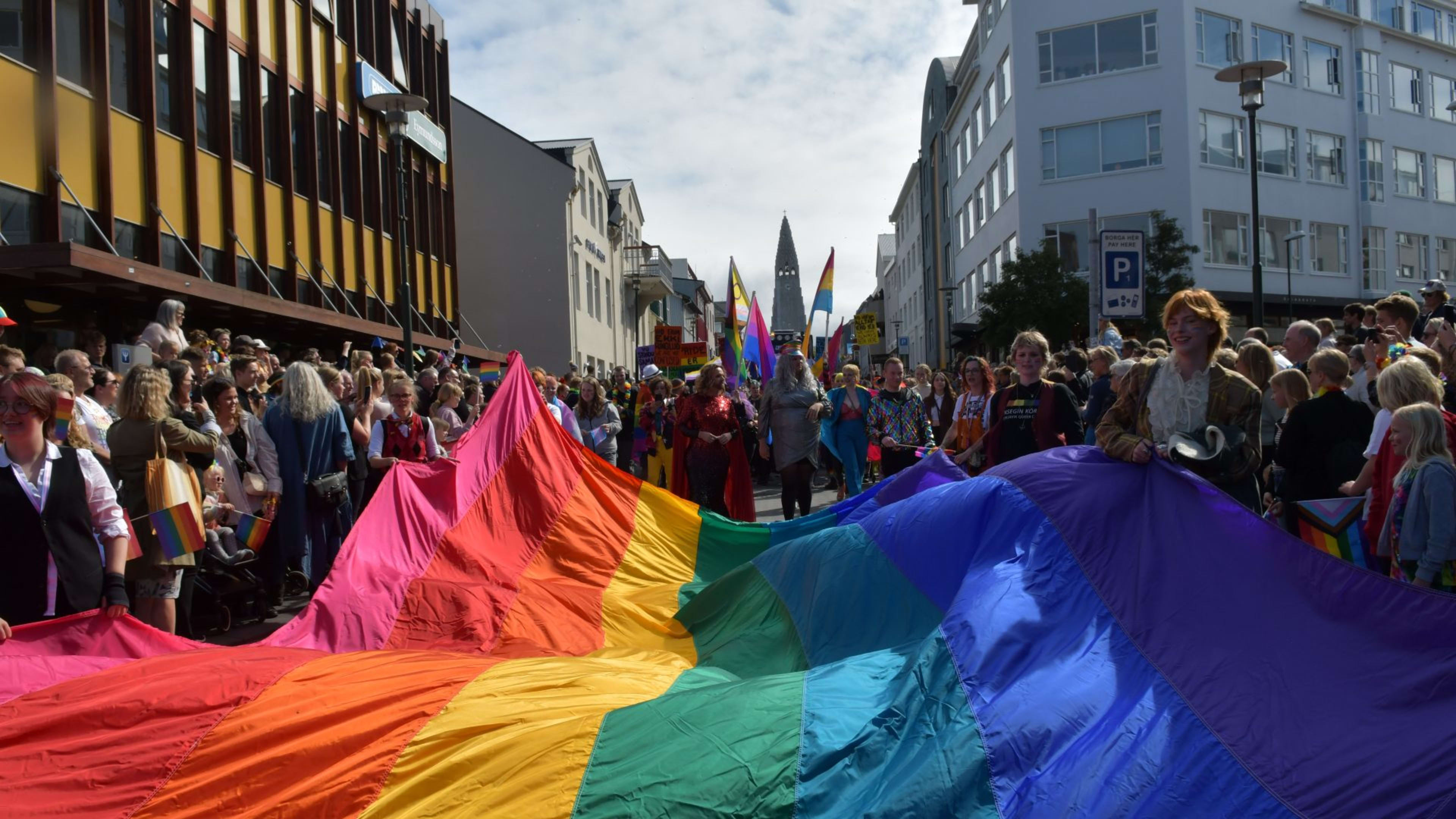
3. No dangerous animals
One thing you don’t have to worry about in Iceland is dangerous wildlife. There are no bears, snakes, poisonous spiders, mosquitos, or ticks to bother you while exploring the beautiful landscapes.
You could even take a nap in a wild meadow without worrying about getting bitten by little bugs. The only wild animal you might come across is the Arctic fox, and even they aren't dangerous. This makes Iceland the perfect place for outdoor activities like hiking and camping.
- Get in touch with nature on a camping tour of Iceland.
- Related: Best places to visit in Iceland.

4. Low crime rate
The crime rate in Iceland is very low. Given the size of the population, the odds are that if you steal a car, you’ll be related to the person you just stole from. Or, you’ll at least know someone who knows them.
Basically, living on such a small island makes crime hard to pull off. So it certainly deters people from even trying!
As well as the low levels of theft, the murder rate in Iceland is only 0 to 1.5 a year. With so few violent crimes, each incident is thoroughly covered by the news and talked about for ages.
To paint a picture – it’s normal for parents to leave their babies napping in a stroller outside. It’s believed this helps strengthen their immune systems. Plus, babies often sleep for up to 3 hours during lunchtime in the cool, fresh air.
But no one worries about someone stealing their baby because it has never happened!
- Related: Tips for visiting Iceland from the US.
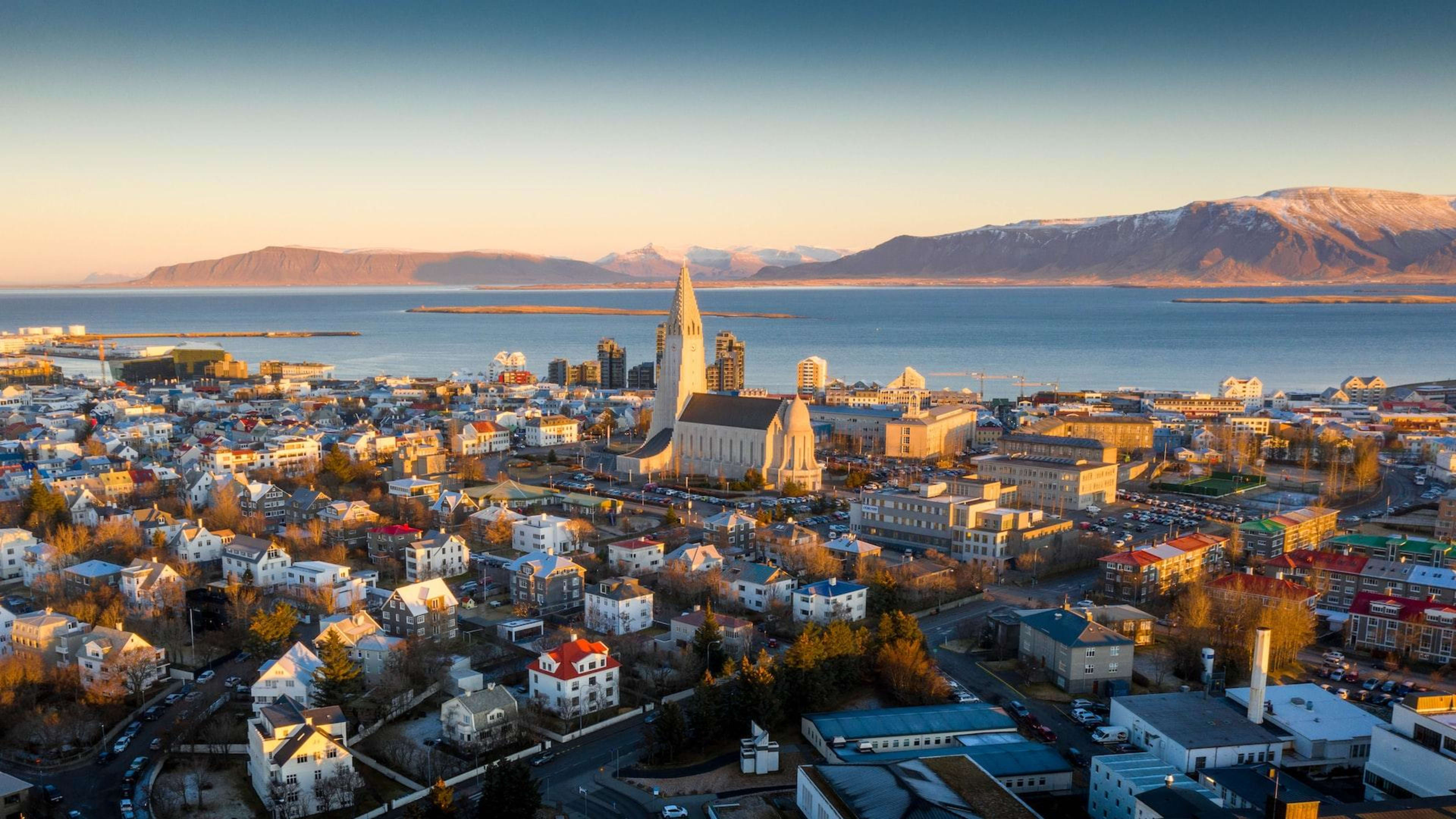
5. Small-town feeling
Like we just mentioned, Iceland is a small place. The population is around 380,000 people, which is less than the number of people in most cities anywhere else in the world.
Around half of them live in the capital, Reykjavík. Each neighborhood in the city has its own sports team, school, swimming pool, and playground. Because of this, each suburb feels like an independent village.
Locals take the responsibility of looking out for each other very seriously, especially within these neighborhoods.
For example, the Search and Rescue team in Iceland (ICE-SAR) in Iceland is made up of Icelanders from all over the country. Each region has a team looking out for its own. But, if someone goes missing or an accident happens, the nearby teams will show up in a heartbeat to help.
- Base yourself in Reykjavík and go on multi-day tours.
- Related: Best towns & cities in Iceland to visit.

Staying safe in Iceland
While Iceland is already safer than most, you can always look out for yourself. Whether on the roads, in the mountains, or in the city, it’s best to be aware of your surroundings and use common sense.
Read on to learn the top 5 tips for staying safe during your trip.

1. Buy travel insurance
Before you set off for Iceland, make sure you have travel insurance. It protects your health, luggage, flights, and even your bank account in case of bigger claims.
Make sure your policy covers all the activities you want to do. If you are from an EEA country, don’t forget to bring your European Health Insurance Card (EHIC).
- Related: Awesome things to do in Iceland.
2. Learn about local road safety
Driving in Iceland is an adventure you won’t soon forget. Just imagine the open road in front of you with views of the white glaciers, stark volcanoes, and the majestic sea.
Before you set off on the road trip of a lifetime, get to know the driving laws and potential hazards you might face. These include the many sheep that roam Iceland, as well as the one-lane tunnels and bridges in remote areas.
It’s also good to know that there aren’t many gas stations in the countryside. Keep an eye on your fuel levels and fill up when you can. And remember that off-road driving is illegal because it can damage the unspoiled nature.
It’s always good to travel as responsibly as you can.
- Book a self-drive tour of Iceland for a memorable road trip.
- Related: How long does it take to drive around Iceland?

3. Check the weather daily
Iceland's weather can be unpredictable, but don’t let that scare you. Despite its chilly name, Iceland isn’t as cold as you might think. Still, it’s always a good idea to be ready for whatever weather comes your way.
If you’re visiting in the winter, keep an eye on the roads. Snow, ice, and wind can make driving tricky, so checking the weather forecast is a must. The Icelandic Meteorological Office is a great resource for staying up-to-date with conditions and potential road closures.
When packing for your winter trip, think layers – something cozy for warmth, waterproofs to keep you dry, and sturdy boots for exploring. This way, you’re covered no matter what the day brings.
And if you’re chasing the Northern Lights, clear skies are your best friend. Watching the Aurora forecast and cloud coverage can help you find the perfect spot for those magical views.
- Experience Iceland’s frosty magic on a winter vacation.
- Related: Iceland in winter – Must-sees and must-dos.

4. Go hiking with peace of mind
The landscapes in Iceland are amazing and attract outdoor lovers from around the world. You could go hiking in the national parks, on glaciers, and even along volcano craters. But whether you’re a newbie or an experienced hiker, be ready for the Icelandic experience.
Hiking is dependent on the weather and season since the trails might not be accessible. Visit between May and September to take advantage of the beautiful hiking paths and long daylight hours.
Just be sure to bring the right gear, clothing, and plenty of water. Plus, it’s best to do a quick online search on the mountain you’re about to hike to know what’s ahead.
- Get inspired by these active tours of Iceland.
- Related: Best day hikes in Iceland.
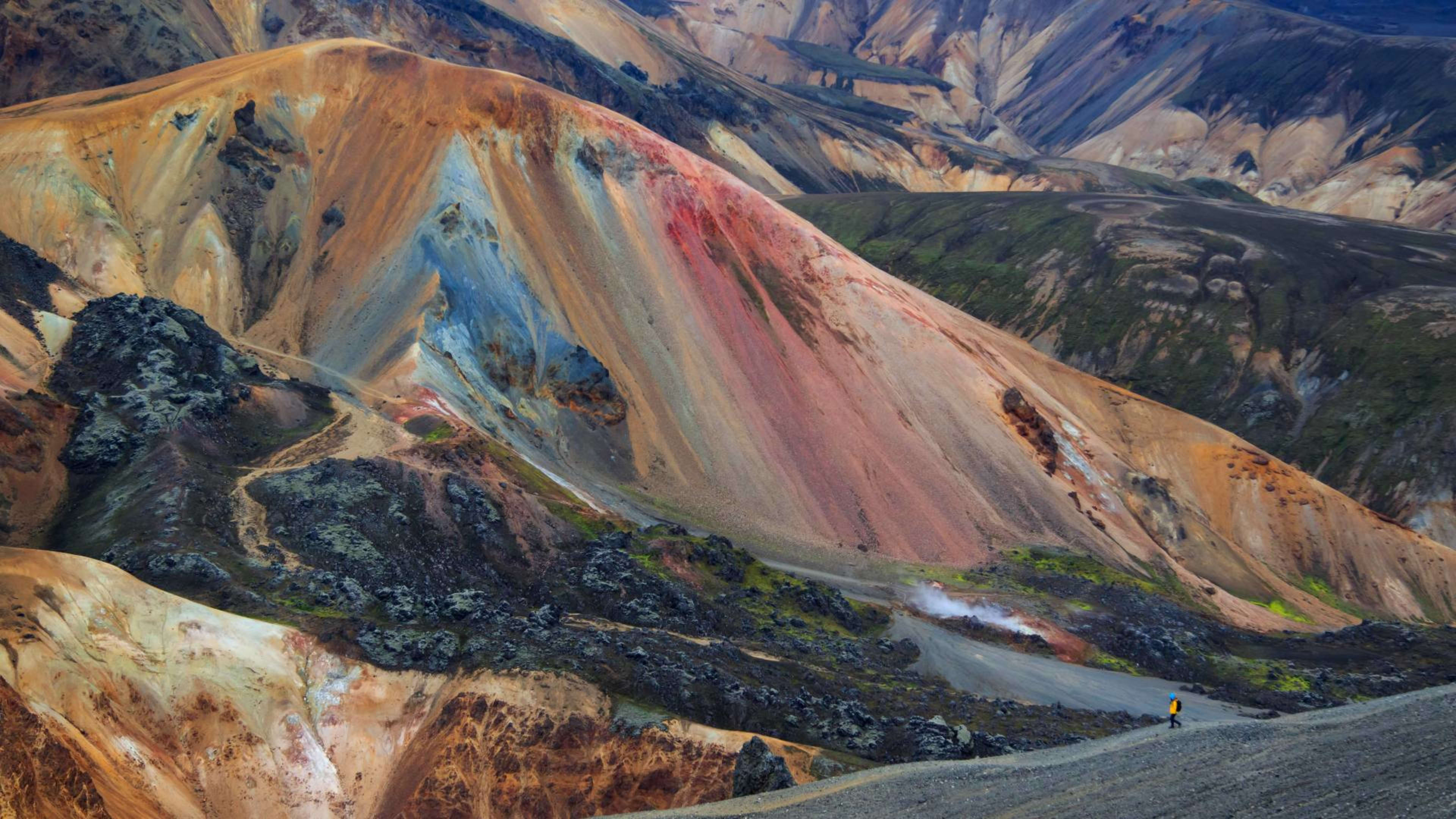
5. Keep your valuables safe
Although crimes are few and far between, petty crimes can happen, like in most countries. So, just be mindful of your belongings when you’re in public. Don’t leave your things unattended and out of a locker at swimming pools or spas.
But generally speaking, the crime rate is very low, and you’ll likely have no issues during your trip.
- Get more health & safety tips for visiting Iceland.
Planning your safe trip to Iceland
We hope that this article answers your questions about visiting Iceland. Because yes, Iceland is a safe country for you to visit!
When you’re ready to book, you can choose from any of these Iceland trips to find the one that suits you. One of our expert agents will answer any questions you may have and help make sure you go on the your dreams.
When you’re ready to book your getaway, our team can help you plan it. All it takes to secure your trip is a 5% deposit.


